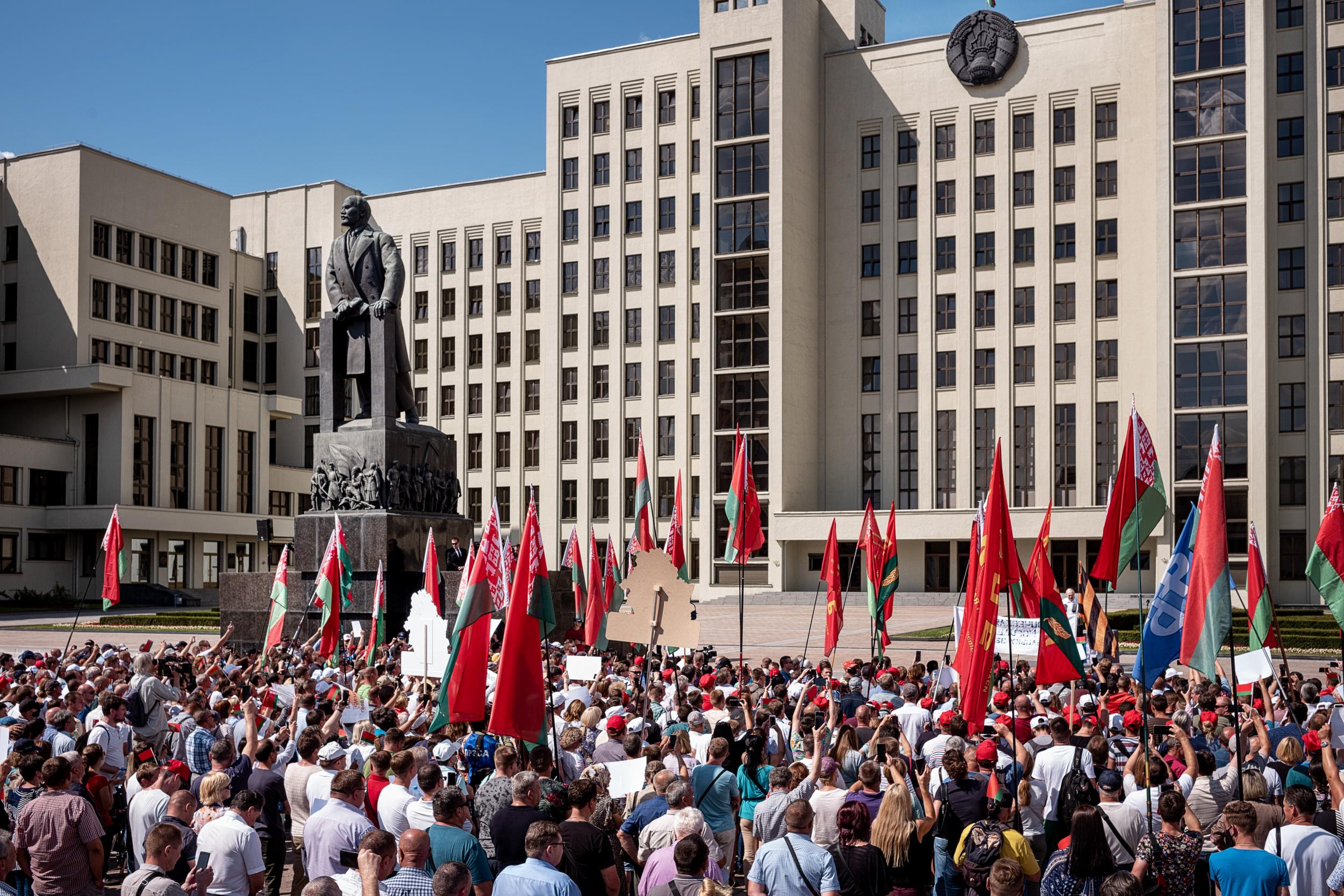Belarus: Embattled Alexander Lukashenko makes ‘on knees’ appeal to stay in power as opposition rallies attract tens of thousands
Leader’s 26-year stint is in jeopardy after turbulent chain of events
Your support helps us to tell the story
From reproductive rights to climate change to Big Tech, The Independent is on the ground when the story is developing. Whether it's investigating the financials of Elon Musk's pro-Trump PAC or producing our latest documentary, 'The A Word', which shines a light on the American women fighting for reproductive rights, we know how important it is to parse out the facts from the messaging.
At such a critical moment in US history, we need reporters on the ground. Your donation allows us to keep sending journalists to speak to both sides of the story.
The Independent is trusted by Americans across the entire political spectrum. And unlike many other quality news outlets, we choose not to lock Americans out of our reporting and analysis with paywalls. We believe quality journalism should be available to everyone, paid for by those who can afford it.
Your support makes all the difference.In Minsk on Sunday, it was a tale of two rallies.
On the one hand was a show put on by Alexander Lukashenko, the “dictator” whose 26-year reign towered over Belarusians until just a few days ago. On the other was a pro-opposition demonstration, emboldened after workers from most state enterprises joined them in a national strike.
Mr Lukashenko made an emotional appeal in front of an underwhelming crowd of a few thousand, many of whom had reportedly been bussed in for the occasion.
“I kneel down in front of you for the first time in my life,” the disputed president said – without, as many noted, actually kneeling.
In one of the most dramatic weeks in its history, the tiny nation of Belarus has witnessed a chain of dramatic events: disputed elections, a withering crackdown, evidence of horrific torture, a fightback led by women, and a major national strike.
On Sunday it witnessed another first: footage of the man who once styled himself as a “strongman” in decidedly grovelling mode.
“I’m not a fan of demonstrations,” he said. “But it’s not my fault that I had to ask you to help.”
Mr Lukashenko presented the crisis as being more than a personal disaster; it was one of a broader “conflict” between east and west. He refused to accept a rerun of the elections, saying that was the agenda of foreign powers.
“If we do as we are told, we die as a nation. They propose sending Nato soldiers our way: black, yellow-mouthed, and blonde hair. If that’s what you want, do it without me.”
Mr Lukashenko’s angry rhetoric contrasted with jubilant scenes across town near the city’s main war memorial.
There, tens of thousands gathered for what many were describing as the largest opposition rally in the country’s history. Dressed in white and red – the colours of the traditional national flag adopted by the opposition – the protesters chanted out in unison calls for Mr Lukashenko to resign.

That indignity continued a calamitous run of events for the man who has ruled Belarus since 1994.
A week ago, the authoritarian put his faith in a display of force, with his special forces doling out violence against protesters and many more besides. Instead, the country became enraged by the footage of brutality on the streets and torture in jails. They came out in ever greater numbers, and their momentum seems unstoppable.
And there are signs of splintering in the regime itself. On Saturday morning, the Belarusian ambassador to Slovakia, a former presidential adviser, became the latest government figure to switch sides.
“Hundreds of my compatriots saw for themselves police rekindling the worst traditions of NKVD,” Igor Leshchenya said, in reference to the Soviet secret police. “I stand in solidarity with those who came out on the streets. The only source of power is the people.”
One side currently sticking by Mr Lukashenko – at least publicly – is Moscow. On Sunday, Belarusian state media reported that the embattled autocrat had held a second phone call with Vladimir Putin. An official readout said that Russia and Belarus would “jointly respond” if the situation gets worse.
But the Kremlin will have been watching events closely and may well come to conclude their man has gone past the point of saving.

Join our commenting forum
Join thought-provoking conversations, follow other Independent readers and see their replies
Comments